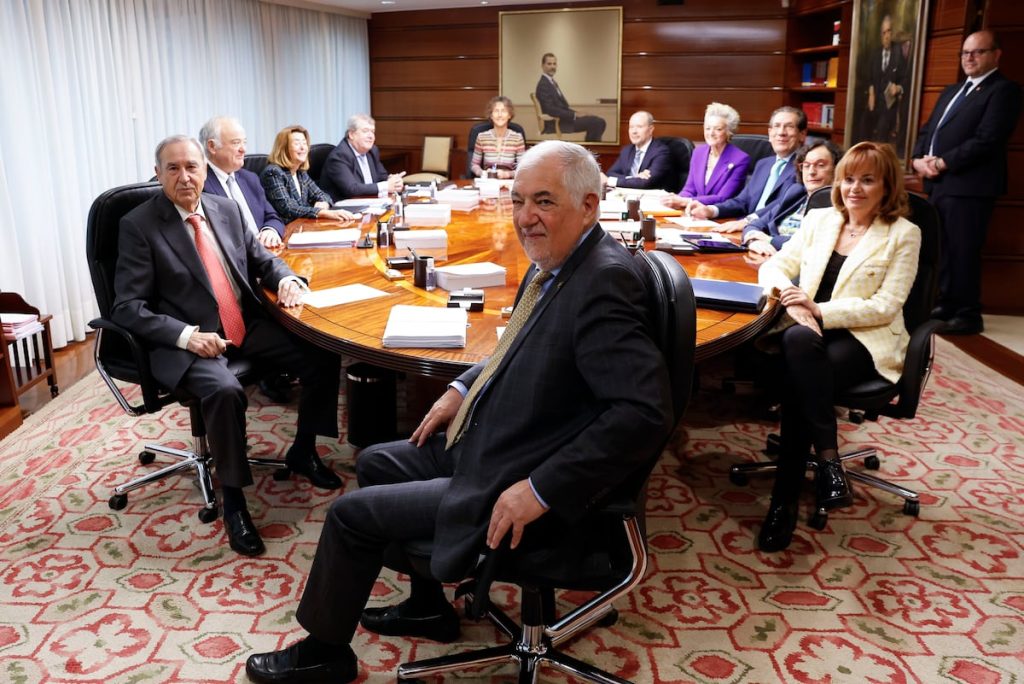The Constitutional Court on Tuesday reaffirmed its doctrine opposing investigations into crimes committed during the Franco regime, citing the 1977 amnesty law. The court rejected the appeal for protection filed by Francisco Ventura, a man who claimed to have suffered mistreatment by the regime’s police in 1967 and whose complaint had been dismissed by two judicial instances. The Constitutional Court concluded that the dismissal did not violate the complainant’s right to effective legal protection and therefore denied the appeal. The ruling was met with two dissenting opinions from progressive judges María Luisa Balaguer and Ramón Sáez, while the other nine judges — five progressives and four conservatives — agreed not to open an investigation. This division within the court highlights the ongoing debate over torture during the dictatorship.
In September 2021, the Constitutional Court effectively closed the door to criminal investigations into Franco-era crimes by dismissing a similar appeal filed by former PCE Secretary General Gerardo Iglesias. In that instance, three judges — María Luisa Balaguer, Juan Antonio Xiol, and Encarna Roca — deviated from the majority position. Similar appeals have also been dismissed, all under the justification of the 1977 amnesty law, which the Constitutional Court believes prohibits the reopening of such cases due to statute of limitations and amnesty laws. In the recent case discussed, a significant majority of the court upheld the doctrine established in a previous ruling, denying any grounds for changing the precedent set in that case.
Normally, appeals for protection are resolved by one of the court’s four sections comprised of three judges each, or by one of its two sections consisting of six judges. This case reached the full court due to its constitutional significance and was explicitly requested by judges Ramón Sáez and María Luisa Balaguer, the two dissenting voices. The court highlighted a new element in this case, the potential impact of the 2022 Democratic Memory Law on fundamental rights. Despite this, the majority of judges deemed it unnecessary to revise or modify the established doctrine from the previous ruling. The court emphasized the importance of respecting basic constitutional principles and legalities, such as the prohibition of retroactive criminal prosecutions.
Judge Balaguer previously expressed disagreement with the majority ruling, arguing that important issues relating to the effects of the amnesty law and the statute of limitations for crimes such as torture were not adequately addressed. She emphasized the need to consider developments in international law concerning crimes against humanity and the implications of the court’s doctrine for addressing periods of impunity in the country’s history. The Constitutional Court still has another similar case pending, involving the complaint of the brother of Ángel Almazán, a member of the Worker’s Party of Spain (PTE) who died in December 1976 after being assaulted by the police during a demonstration against the Political Reform Law. The ongoing debate within the court reflects the complexities and sensitivities surrounding historical crimes and human rights violations during the Franco era.


